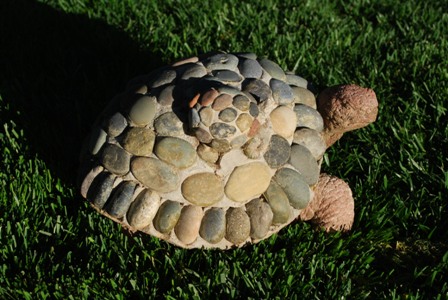Ask The Wizard #251
In 2009, the total amount wagered on blackjack tables in Nevada was $8.917 billion. The casinos won $1.008 billion. How much of that is attributable to player mistakes?
From the Nevada Gaming Control Board 2009 revenue report, we see the win for "21" was indeed $1,008,525,000. That probably includes blackjack variants. According to my February 20, 2010 Ask the Wizard column, the cost of mistakes in blackjack is about 0.83%, according to gaming consultant Bill Zender.
The missing piece is what would be the house edge without the errors? I admit this is kind of crude, but the average of the house edge column in the April 2010 Current Blackjack Newsletter is 0.78%. So, the total house edge in blackjack, including errors is 0.78% + 0.83% = 1.61%. The portion of that due to errors is 0.83%/1.61% = 51.55%. So the 2009 profit from blackjack errors in Nevada could be roughly estimated as 1,008,525,000 × 0.5155 = $519 million.
This question was raised and discussed in the forum of my companion site Wizard of Vegas.
What are the odds of getting a royal flush in 9-6 Jacks or Better holding one card only?
The following table shows the probability of each kind of royal, according to the number of cards held, given that there was a royal. It shows that 3.4% of royals are from holding one card. The probability of a royal to begin with is 1 in 40,391, so the unconditional probability of a royal holding one card is 1 in 1,186,106.
9/6 Jacks Royal Combinations
| Cards Held | Combinations | Probability |
|---|---|---|
| 0 | 1,426,800 | 0.002891 |
| 1 | 16,805,604 | 0.034053 |
| 2 | 96,804,180 | 0.196154 |
| 3 | 195,055,740 | 0.395240 |
| 4 | 152,741,160 | 0.309498 |
| 5 | 30,678,780 | 0.062164 |
| Total | 493,512,264 | 1.000000 |
In your page on Megabucks, you said the value of 25 equal annual payments at the beginning of each year, with an interest rate of 4.66%, is worth 61.07% of face value. I was wondering what formula you used for the annuity?
The formula is V = P × [(1-(1+i)-n)]/(i/(1+i)), where:
V = value of annuity
P = individual payment amount
i = interest rate
n = number of payments
Let’s say the jackpot was $15M. Using i = 4.66%, and n=25, the fair payment to keep up with inflation would be $982,525. You would actually get 15M/25 = $600,000. Actual payment/fair payment = 61.07%.
Not that you asked, but the formula if the payments are made at the end of each year is V = P × [(1-(1+i)-n)]/i.
This question was raised and discussed in the forum of my companion site Wizard of Vegas.
I sell sculptures. On average, out of every seven sculpture sales, one will be a turtle, and the rest will be other types of sculptures. How many turtles do I need to have in stock if I want a 90% chance of not running out in the next 100 sculpture sales?

Let t be the number of turtles made, and x the number sold.
pr(x<=t)=0.9
pr(x-14.29<=t-14.29)=0.9
pr((x-14.29)/3.5)<=(t-14.29)/3.5))=0.9
The left side of the inequality follows a standard normal distribution (mean of 0, standard deviation of 1). This next step takes an introductory statistics course, or some faith, to accept.
(t-14.29)/3.5 = normsinv(0.9) This is the Excel function.
(t-14.29)/3.5 = 1.282
t-14.29 = 4.4870
t = 18.77
Nobody is likely to buy 0.77 of a turtle statue, so I would round up to 19. According to the binomial distribution, the probability of selling 18 or less is 88.35%, and 19 or less is 92.74%. This question was raised and discussed in the forum of my companion site Wizard of Vegas.
There is a well-known story about a freeze-out competition between a Japanese high roller, Kashiwagi, and Donald Trump, that took place 20 years ago. Kashiwagi was not allowed to play more than $200K per hand at baccarat. The game would be over when either the casino or the player was ahead by $12 millon. Assume that Kashiwagi always bet the maximum on Banker. What is the probability that Kashiwagi will win?
The math works out more easily if he bet on the Player. I work out a similar problem in roulette at my mathproblems.info site, problem number 116. For even money bets, the general formula is ((q/p)b-1)/((q/p)g-1), where:
b = starting bankroll in units.
g = bankroll goal in units.
p = probability of winning any given bet, not counting ties.
q = probability of losing any given bet, not counting ties.
Here the player starts with $12 million, or 60 units of $200,000, and will play until reaches 120 units or goes bust. So in the case of the Player bet the equation values are:
b = 60
g = 120
p = 0.493175
q = 0.506825
So the answer is ((0.506825/0.493175)60-1)/(( 0.506825/0.493175)120-1) = 16.27%.
It is much more complicated on the Banker bet, because of the 5% commission. That would result in the distinct possibility of the player overshooting his goal. If we add a rule that if a winning bet would cause the player to achieve his goal, he could bet only what was needed to get to $12 million exactly, then I estimate his probability of success at 21.66%.
A simpler formula for the probability of doubling a bankroll is 1/[1+(q/p)b].
This question was raised and discussed in the forum of my companion site Wizard of Vegas.




